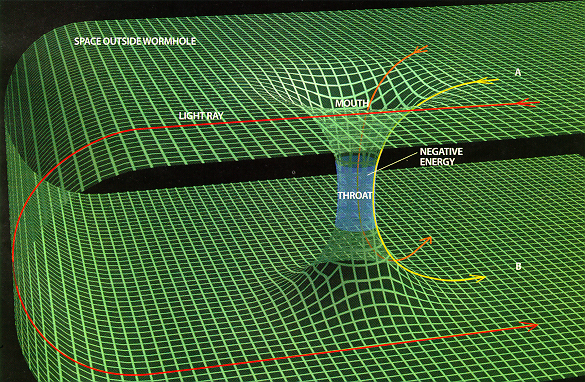Thank the Lord for the last day of classes…

Category Archives: Networked Media Specific
10: Lè Tour of Latour
In his article, Bruno Latour sets out to determine exactly what a network is. He explains that the term ‘network’ is misunderstood, that the network does not describe an infrastructural setup like a telephone network or subway.
He defines the characteristics of a network as distant, having compulsory paths and having strategically positioned nodes – quite different from the previously outlined understanding of the network through the metaphor of a telephone network.
Whilst the Actor-Network Theory does not subscribe to ‘vague all encompassing sociological terms’, it is aimed at describing the very nature of societies.
Latour goes on to describe the network as a live entity. That the nodes of the networks have an infinite number of dimensions and connections – that they are versatile and are not restricted to interacting in a certain way.
After about the 3rd page, my brain started to hurt and I felt like I was trying to comprehend the 4th dimension… Cheers Latour

Nice try, Shifty McGee.
Well, well, well. It would appear that merely posting about not going to the symposium will satisfy the participation requirements, eh?
Then surely, re-inception-ating such a post and posting about a post about not going will more than gratify the checklist, if not…geh.
08 Reading: Potts//Murphie
Culture and Technology, where do we begin?
The main points I took from the Potts, Murphie reading were:
– Technologies play a prominent role in defining a society and determining where that society goes in the future.
– For technology to remain relevant, it must adapt to changing social conditions.
– Technology does not simply refer to the evolution of gadgetry that is always present in society, but more so to the technological age, in which everything around us (the entire developed world) is a form of technology and we are forever entwined with this technology.
– Our technology is our culture and our culture is our technology; as the world moves in this never-ending technological vortex, it is likely that technology will now forever be a part of who we are, and we will seek to create technologies that we are as much a part of.
03 Readings: The speculative past, present and future…WOT
Vannevar Bush’s ‘As We May Think’ is a truly interesting article which explores the development of science as we know it. He weighs up the advantages of ‘man’s science’ – increased control of our material environment and improved clothing/food/shelter. Bush then continues on to reflects upon the inhibiting effect that scientists and their differing specialisations can have on one another – arguing that there are simply too many developments than can be grasped and remembered. In order to combat this hinderance, Bush argues that scientists should focus on making their combined knowledge more accessible to one another – rather than overloading the already crowded database that is scientific research. This got me thinking – and not for the first time about a possible solution to this problem. Imagine if there was some kind of worldwide knowledge super-computer which one could plug oneself into and learn everything and anything they desired at the flick of a switch; almost like how Buzz suddenly speaks fluent Spanish and becomes a dancing casanova when he enters ‘Spanish mode‘ – that’d be the day. This article is an absolute gem of a take on the future, proposing a number of ideas which don’t seem ridiculous or even out of the question – but rather suggest that we don’t know where things will end up, or how the world will be different in a couple of decades.
Theodor Holm Nelson. WOW. That’s one introduction to a book I never, ever, ever saw coming. I actually think it would be impossible to propose a more confusing read-through of a piece of writing, or several – chapters zero through three. Anyway, onwards I read, only to find myself tripping on the idea of Xanadu storage networks. What just happened? What did I just read? The only conclusion I was able to draw from this reading was the idea of developing networks that are capable of storing and accessing an unlimited bank of data. Which is vaguely related to my super computer featuring a ‘plug n’ learn’ feature for the human brain…somehow.
Relating these two readings to the symposium, I feel as though it is important to be able to speculate – and whilst there is no limit to how far we think ahead, Elliot’s point about being ‘grounded’ was something that I took away from the symposium and had an impact on me.
Needless to say – these readings were very…speculative. Confusing the bejesus out of me whilst also provoking a lot of thought, just as the unlectures before them did. Twinkle, twinkle, how I wonder what the future holds.
02 Readings: Design Fiction and ‘the realm of the real’
 It has come to my attention that I may/may not have accidentally skipped forward a week in the readings and left the ever important ‘Design Fiction’ content in my dust. (Props to Tom Lewis for the guide on posting a GIF into your blog.)
It has come to my attention that I may/may not have accidentally skipped forward a week in the readings and left the ever important ‘Design Fiction’ content in my dust. (Props to Tom Lewis for the guide on posting a GIF into your blog.)
Carrying on. This week’s real reading – an article from Matthew Ward; a designer and educator, who explores the importance of DF (Design Fiction, not dairy-free) in a creative line of work.
Ward makes the point that those who work in consultancy must constantly fight the ‘dark matter’ to have their work made. What is dark matter? In this context, I’d like to believe that dark matter is ‘the box’ in which one’s ideas become unoriginal and somewhat dull. He argues that thinking laterally and ‘pushing the boundaries’ of one’s discipline allow them to design creatively, to remain original and most importantly, to have one’s work made.
I was particularly drawn to point number six (being open to experimentation) on Ward’s manifesto, perhaps because it is what I feel lacking from my own creative process. I think that I get set on one really specific idea and refuse to let myself change it for the better/worse – which might act as a creative block and refuse me the opportunity to really develop any of my work and learn from mistakes.
The importance of consuming literature to learn what makes a strong, interesting, complex yet subtle narrative is not overlooked and Ward suggests in his 12th point that immersing oneself in writing will not do any harm.
Ultimately, this reading provided me with a deeper insight into writing fiction and how the creative process can be aided by means of ‘pushing the boundaries’, experimenting and reading, a lot.

Un-lecture No.3
Upon returning from my weekend ski trip away at Falls Creek, I was feeling a bit anxious about getting back to reality – which meant catching the dreaded ‘Stopping All Stations’ train from Eltham. Nothing to report from this trip…unfortunately.
After being absent from the 2nd un-lecture I was interested to see how Adrian would tackle the hour-long session and whether or not it would turn out how I’d imagined it might – it hadn’t.
This un-lecture proved to be as mysterious as the inaugural one, leaving me to think about my own approach to networked media and indeed the rest of my university campaign. Adrian spoke about how some of us might feel uncomfortable with the machine that is Networked Media, how we might struggle to cope with the blog and its many requirements. I was definitely a member of this group in the beginning – but am slowly being turned into a believer.
When Adrian made use of the ‘dancing’ metaphor to describe Networked Media, stating that ‘no-one knows where it leads and no-one knows the steps’, all I could think in my head was ‘let’s boogie’. This mysterious dance is one that sounds beneficial. As the future of the media industry itself is mysterious and unknown – it is difficult to imagine how we will contribute, but I am sure Networked media is a step in the right direction.
Then the idea of university as a two-way transaction, requiring ‘reciprocal obligation’ and effort from myself as well as those employed to guide me was raised. This got me thinking about who I was to become and how I would become that person. I would need to be open to ideas, to think outside the box and even nurture myself through uni.
I AM A MYSTERY EGG AND SO IS THE FUTURE. All that is known is the present. Therefore we must care for it and prepare ourselves for the uncertain future ahead by learning to think in a certain way – a skill that the mysterious dance of Networked Media might lead to. 
The certainly not big boat that is Networked Media
Firstly, I like this subject. From the moment I walked into the first ‘unlecture’, heard about how we were being assessed and begun work on my own blog, I was absolutely chuffed with COMM 2219: Networked Media.
I think it is the approach to ‘work’ in this course that most excites me. Rather than writing essays (something I’m sure every student is happy about), we are asked to write about obscure readings and interpret them however we see fit.
This first reading was confusing, to say the least. It seemed to be more of a poem than an actual description of the course we were undertaking – but slowly began to make more sense by my 5th read-through.
I feel as though being on the ‘boat’ that is Networked Media provides us with an opportunity – to begin to develop the skill of blogging that will most likely be an important part of our work in the future. The boat requires a number of things from it’s occupants – they mustn’t be lazy, they must be proactive and willing to work, especially if they plan on making it anywhere worthwhile.
In my opinion, the boat and the ocean in which it floats, along with the eddies, currents and waves are a very successful metaphor for ‘the network’ and describe the way in which the it is free to move about the vast ocean of ideas that surround it.
Needless to say, this reading was weird – but hey! Weird mightn’t be so bad after all.


